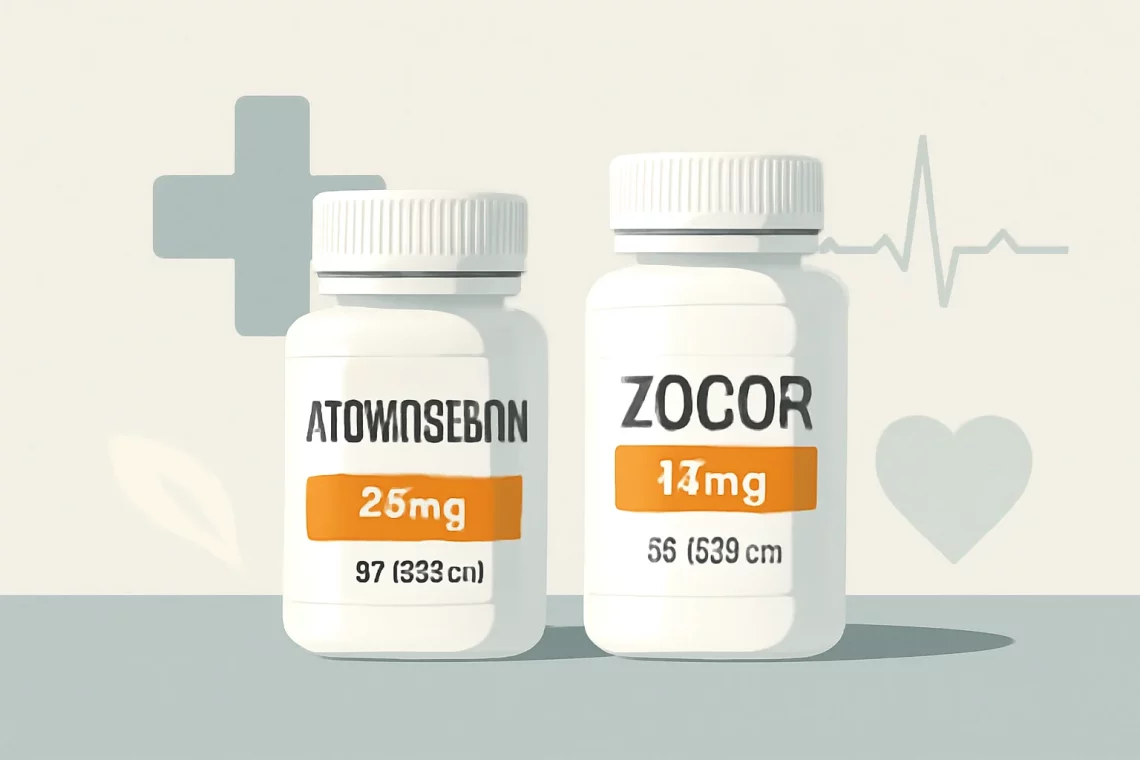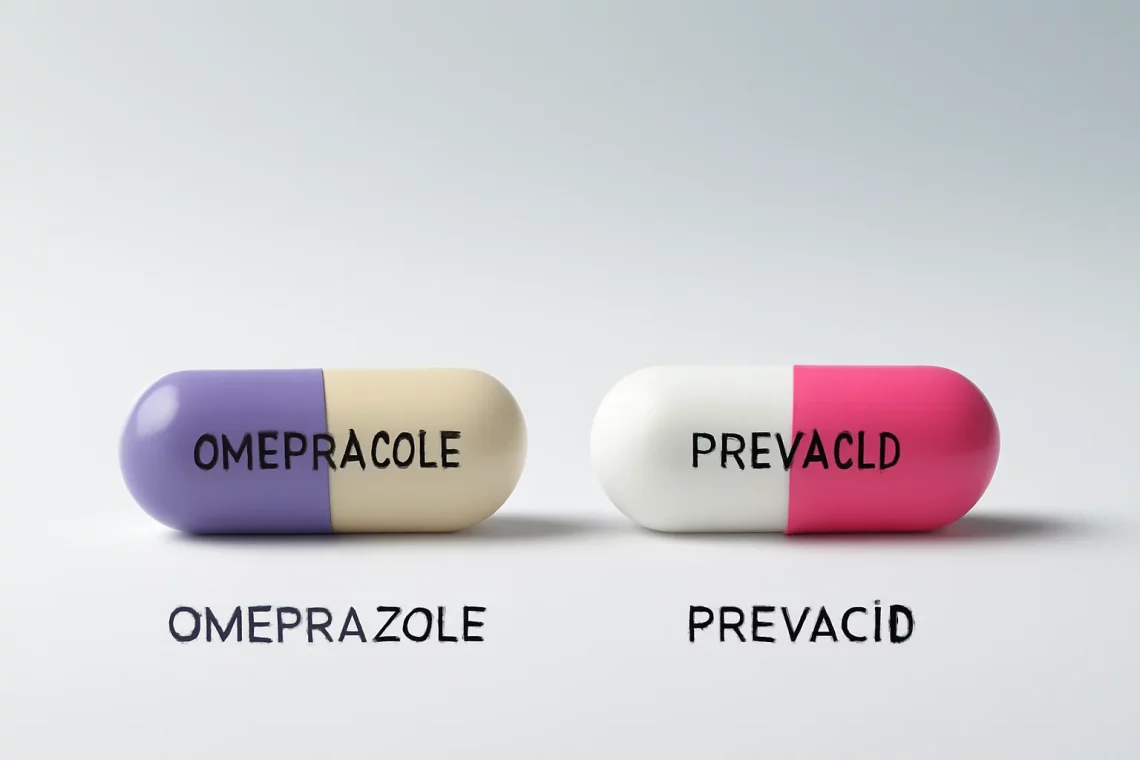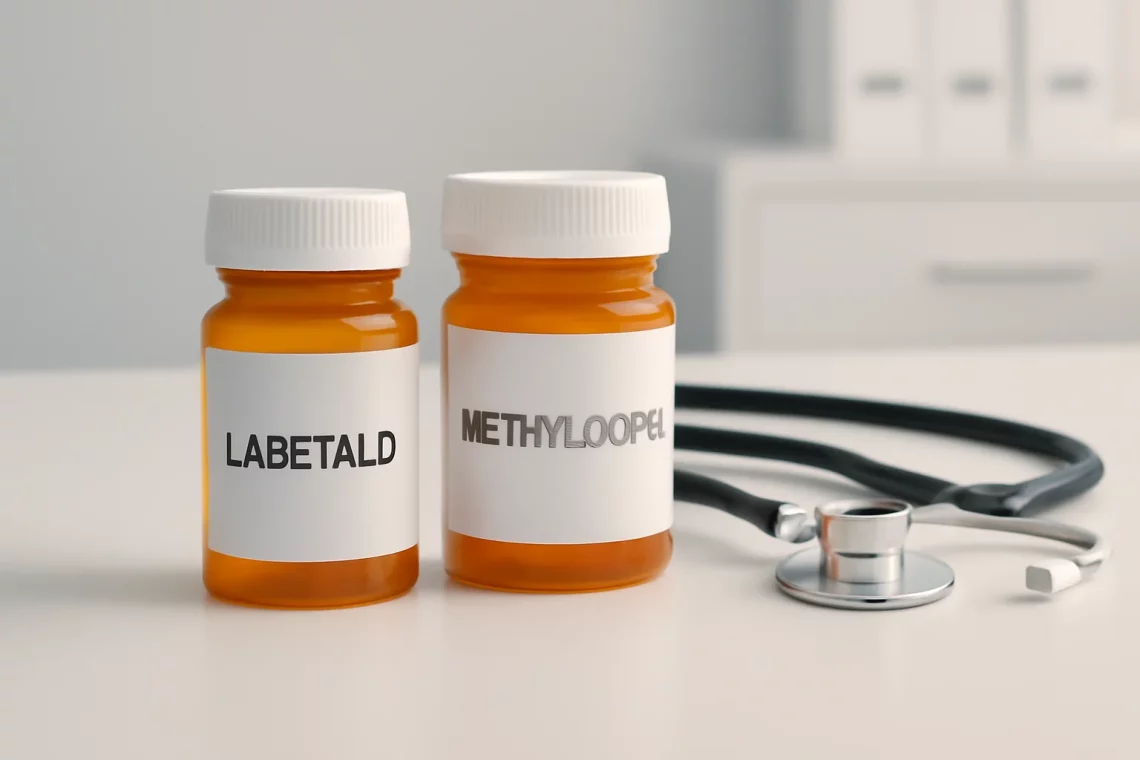-
Gemtesa vs Detrol: A Comprehensive Comparison of Urinary Medications
Gemtesa and Detrol are two medications that have gained attention for their roles in managing urinary conditions, particularly overactive bladder (OAB). With an increasing number of individuals experiencing symptoms such as urgency, frequency, and incontinence, understanding the available treatment options becomes crucial. Both Gemtesa and Detrol are designed to alleviate these symptoms, yet they operate through different mechanisms and may suit different patient profiles. As the healthcare landscape continues to evolve, patients and healthcare providers are increasingly seeking effective solutions to enhance quality of life. The choice between Gemtesa and Detrol can be influenced by various factors, including the severity of symptoms, potential side effects, and individual health considerations. This…
-
Atorvastatin vs Zocor: Which Cholesterol Medication is Right for You?
Atorvastatin and Zocor are two medications commonly prescribed to manage cholesterol levels and reduce the risk of cardiovascular diseases. Both belong to a class of drugs known as statins, which work by inhibiting the enzyme HMG-CoA reductase, crucial for cholesterol production in the liver. High cholesterol levels can lead to atherosclerosis, a condition where arteries become narrowed and hardened, increasing the risk of heart attacks and strokes. The importance of managing cholesterol levels has become a focal point in preventive healthcare. With cardiovascular diseases being among the leading causes of death worldwide, understanding the options available for cholesterol management is essential. Statins, including atorvastatin and Zocor, have proven effective in…
-
Omeprazole vs Prevacid: Which Proton Pump Inhibitor Is Better?
Omeprazole and Prevacid are both widely used medications in the realm of gastrointestinal health, primarily known for their roles as proton pump inhibitors (PPIs). These medications are designed to reduce the production of stomach acid, providing relief for various conditions such as gastroesophageal reflux disease (GERD), peptic ulcers, and Zollinger-Ellison syndrome. As the prevalence of acid-related disorders continues to rise, understanding the differences and similarities between these two drugs becomes increasingly essential for patients and healthcare providers alike. Proton pump inhibitors work by blocking the proton pumps in the stomach lining, leading to decreased acid secretion. This reduction in acid can alleviate symptoms of heartburn, allow ulcers to heal, and…
-
Ibuprofen vs Advil: Understanding the Differences and Uses
Ibuprofen and Advil are two terms often encountered in discussions surrounding pain relief and inflammation management. Both are widely used in households and medical settings alike, yet many people may not fully understand the differences and similarities between them. In essence, ibuprofen is the generic name for a common nonsteroidal anti-inflammatory drug (NSAID), while Advil is a popular brand name under which ibuprofen is sold. This distinction raises questions about the efficacy, usage, potential side effects, and overall safety of these medications. As individuals seek effective solutions for pain, fever, and inflammation, it’s crucial to navigate the pharmaceutical landscape carefully. The choice between ibuprofen and Advil may seem trivial; however,…
-
Clindamycin vs Flagyl: A Comprehensive Comparison of Antibiotics
Clindamycin and Flagyl are two commonly prescribed antibiotics used to treat various bacterial infections. Their effectiveness and appropriate use depend on the type of bacteria involved and the specific condition being treated. Clindamycin belongs to the lincosamide class of antibiotics, while Flagyl, or metronidazole, is classified as a nitroimidazole. Both medications play crucial roles in modern medicine, particularly in the management of infections that are resistant to other antibiotics. Understanding the differences and similarities between these two antibiotics can aid healthcare professionals and patients alike in making informed decisions regarding their treatment options. Each medication has unique indications, mechanisms of action, and side effects, which can influence the choice of…
-
Naltrexone vs Campral: Choosing the Right Treatment for Alcohol Dependence
The journey toward recovery from substance use disorders can be challenging, often requiring a multifaceted approach that combines therapy, support, and sometimes medication. Among the various options available to individuals seeking to overcome alcohol dependence, two medications, Naltrexone and Campral, have emerged as popular choices. While both aim to assist individuals in their recovery journeys, their mechanisms of action, side effects, and suitability for different individuals can vary significantly. Understanding these medications is crucial for individuals, families, and healthcare providers involved in the treatment of alcohol use disorder. As awareness of addiction and its treatment continues to grow, so too does the need for informed decisions regarding the use of…
-
Opdivo vs Yervoy: A Comprehensive Comparison of Cancer Treatments
In recent years, the field of oncology has witnessed significant advancements, particularly in immunotherapy. Among the various treatment options available, Opdivo and Yervoy have emerged as two prominent therapies for several types of cancer. Both drugs are designed to harness the body’s immune system to fight cancer cells, but they operate through different mechanisms and are often used in conjunction with one another. Opdivo, known generically as nivolumab, is a monoclonal antibody that blocks a protein called PD-1, which cancer cells exploit to evade detection by the immune system. By inhibiting PD-1, Opdivo enhances the ability of T-cells to recognize and attack cancer cells. On the other hand, Yervoy, or…
-
Labetalol vs Methyldopa: Which is Better for Managing Hypertension?
Hypertension, commonly known as high blood pressure, is a significant global health concern that affects millions of individuals. It is often dubbed the “silent killer” due to its asymptomatic nature, which can lead to severe complications if left untreated. Effective management of hypertension is crucial to prevent cardiovascular diseases, stroke, and other life-threatening conditions. Among the various classes of antihypertensive medications available, labetalol and methyldopa have gained attention for their unique properties and applications in treating high blood pressure, particularly in specific populations such as pregnant women. Labetalol, a combined alpha and beta-blocker, has been widely used due to its dual mechanism of action, which effectively lowers blood pressure by…
-
Gabapentin or Pregabalin: Which is Right for Your Pain Management?
Gabapentin and pregabalin are two medications widely used in the management of various neurological and pain disorders. Both belong to a class of drugs known as gabapentinoids, which primarily function by modulating the release of certain neurotransmitters in the brain. The therapeutic effects of these medications have made them popular choices for treating conditions such as neuropathic pain, fibromyalgia, and even epilepsy. Despite their similarities, gabapentin and pregabalin have distinct pharmacological profiles, side effects, and indications that can influence a healthcare provider’s choice between the two. In recent years, there has been a growing interest in understanding the nuances between gabapentin and pregabalin. Patients often find themselves faced with choices…
-
Clonazepam vs Diazepam: Which Medication is Right for You?
Clonazepam and diazepam are two medications that fall under the category of benzodiazepines, a class of drugs commonly prescribed for their sedative, anxiolytic, and muscle-relaxant properties. These medications have been widely used in the treatment of various conditions, including anxiety disorders, panic attacks, and seizures. Despite their similarities, clonazepam and diazepam have distinct differences in their pharmacological profiles, indications, and side effects, which can influence the choice of one over the other in clinical practice. Understanding these differences is essential for patients and healthcare professionals alike, as it can guide effective treatment strategies tailored to individual needs. Both medications work by enhancing the effects of a neurotransmitter called gamma-aminobutyric acid…







































